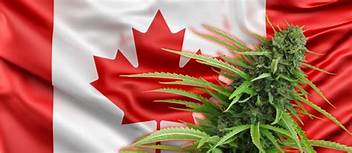With the legalization of pot in Canada last Wednesday October 17th, many parents & grandparents of teens and ‘tweens are nervous about starting the conversation about smoking, toking and vaping weed now that it’s more easily available. Did I raise my kid to stand up to peer pressure? Does my kid understand the fall-out from prolonged use of weed and long-term health issues? Will my teen’s future be compromised if they indulge in regular pot use? The author of the recently published The Anxious Teen (a guidebook for parents, teachers, mentors of teens suffering stress and anxiety) KRISTINA VIRRO (pictured below) sat down with me last week and answered a few questions that parents may have and advice they may need before broaching the subject over the family dinner table.
The author of the recently published The Anxious Teen (a guidebook for parents, teachers, mentors of teens suffering stress and anxiety) KRISTINA VIRRO (pictured below) sat down with me last week and answered a few questions that parents may have and advice they may need before broaching the subject over the family dinner table. What should parents look for to identify drug use in their teens? One warning sign is finding accessories associated with drug use, so parents can benefit from familiarizing themselves with what these are. Another warning sign is when a teen starts missing or skipping class, which is often associated with poorer grades. Finally, the smell of marijuana is a dead giveaway, though you might notice your teen using several air fresheners, candles, colognes and more to cover up the smell.
What should parents look for to identify drug use in their teens? One warning sign is finding accessories associated with drug use, so parents can benefit from familiarizing themselves with what these are. Another warning sign is when a teen starts missing or skipping class, which is often associated with poorer grades. Finally, the smell of marijuana is a dead giveaway, though you might notice your teen using several air fresheners, candles, colognes and more to cover up the smell. 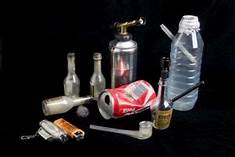 What are the changes in behaviour or indications that your teen may be experimenting with pot or other drugs? You might notice a change in their friend group and a withdrawal from family bonding time. Since every teenager is unique, pay attention to any changes in their personality that just seem different, too. They might become more apathetic, less productive, possess less self-control, and start paying less attention to their personal hygiene. Or, they might become more aggressive, defensive, irritable, and paranoid, which could all be symptoms of drug use.
What are the changes in behaviour or indications that your teen may be experimenting with pot or other drugs? You might notice a change in their friend group and a withdrawal from family bonding time. Since every teenager is unique, pay attention to any changes in their personality that just seem different, too. They might become more apathetic, less productive, possess less self-control, and start paying less attention to their personal hygiene. Or, they might become more aggressive, defensive, irritable, and paranoid, which could all be symptoms of drug use.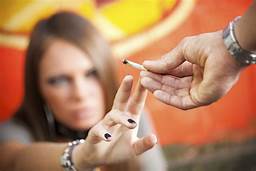 How do you communicate your distrust of your teen’s friends or peers (who may be involved in drug activities) without causing them to react negatively or defend their friends? During adolescence, teenagers are actually biologically wired to enhance their connection to peers, meaning they often feel very loyal and protective of their friends. The worst thing you can do is insult friends, so stay far away from poking fun at them, calling them names, or making hurtful totalizing statements (i.e. “your friends are all losers.”) While your first instinct might be to cut contact between your teenager and their “sub-par” friends, it might be better to simply create some boundaries for the times they are spending time with them. Set curfews, check in on them a bit more often, or whatever you feel is best. Finally, create more opportunities for you and your teen to spend quality time together—alone or with the entire family—as this has been well-researched to minimize drug use.
How do you communicate your distrust of your teen’s friends or peers (who may be involved in drug activities) without causing them to react negatively or defend their friends? During adolescence, teenagers are actually biologically wired to enhance their connection to peers, meaning they often feel very loyal and protective of their friends. The worst thing you can do is insult friends, so stay far away from poking fun at them, calling them names, or making hurtful totalizing statements (i.e. “your friends are all losers.”) While your first instinct might be to cut contact between your teenager and their “sub-par” friends, it might be better to simply create some boundaries for the times they are spending time with them. Set curfews, check in on them a bit more often, or whatever you feel is best. Finally, create more opportunities for you and your teen to spend quality time together—alone or with the entire family—as this has been well-researched to minimize drug use.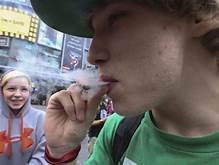 If you find weed in your teen’s room or school bag, what should you do/say? Take some time to process and/or release any feelings that arise before approaching your teen. Once you feel ready to approach the topic in a more neutral manner, start by being honest about finding marijuana. From there, communicate why you’re feeling concerned in a way that doesn’t sound accusatory. Speak in “I” statements and avoid extreme language like “always” or “never.” I also invite parents to consider taking a harm reduction approach, which is based on the idea that, for better or worse, drug use happens, and our goal should be to minimize its harmful effects rather than simply condemning them. A large body of research supports the efficacy of such a strategy. This might involve talking openly about drug use, creating guidelines, and/or using the drug when the effects will be the least disruptive.
If you find weed in your teen’s room or school bag, what should you do/say? Take some time to process and/or release any feelings that arise before approaching your teen. Once you feel ready to approach the topic in a more neutral manner, start by being honest about finding marijuana. From there, communicate why you’re feeling concerned in a way that doesn’t sound accusatory. Speak in “I” statements and avoid extreme language like “always” or “never.” I also invite parents to consider taking a harm reduction approach, which is based on the idea that, for better or worse, drug use happens, and our goal should be to minimize its harmful effects rather than simply condemning them. A large body of research supports the efficacy of such a strategy. This might involve talking openly about drug use, creating guidelines, and/or using the drug when the effects will be the least disruptive.  Should parents discuss their own youthful drug use with their teens and how do you start the conversation without sounding “preachy”? Being “preachy” involves excessively trying to teach moral lessons, and usually involves talking at someone rather with them. To avoid this, make the conversation collaborative. Be curious rather than judgmental and remind yourself that people used pot when you were young, too. If your teen feels like you’re blowing things out of proportion and not listening to them, they’ll become more secretive, which is precisely what you don’t want.
Should parents discuss their own youthful drug use with their teens and how do you start the conversation without sounding “preachy”? Being “preachy” involves excessively trying to teach moral lessons, and usually involves talking at someone rather with them. To avoid this, make the conversation collaborative. Be curious rather than judgmental and remind yourself that people used pot when you were young, too. If your teen feels like you’re blowing things out of proportion and not listening to them, they’ll become more secretive, which is precisely what you don’t want.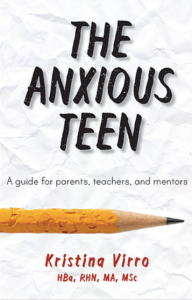 Thanks, Kristina. And she offers lots more advice and approaches to parental and family interactions concerning drug use and abuse, as well as coping with the stress and anxiety teens are currently experiencing. You can get a copy of Kristina’s book from Amazon or iBooks, or directly from the author via her website: www.fresh-insight.ca
Thanks, Kristina. And she offers lots more advice and approaches to parental and family interactions concerning drug use and abuse, as well as coping with the stress and anxiety teens are currently experiencing. You can get a copy of Kristina’s book from Amazon or iBooks, or directly from the author via her website: www.fresh-insight.ca
Ms. Virro’s Credentials:
Individual, Couples & Family Therapist (Master of Science, University of Guelph)
Registered Holistic Nutritionist (Canadian School of Natural Nutrition)
Master’s of Journalism (University of Western Ontario)
Certificate in Trauma-Informed Care (University of Buffalo, School of Social Work)

